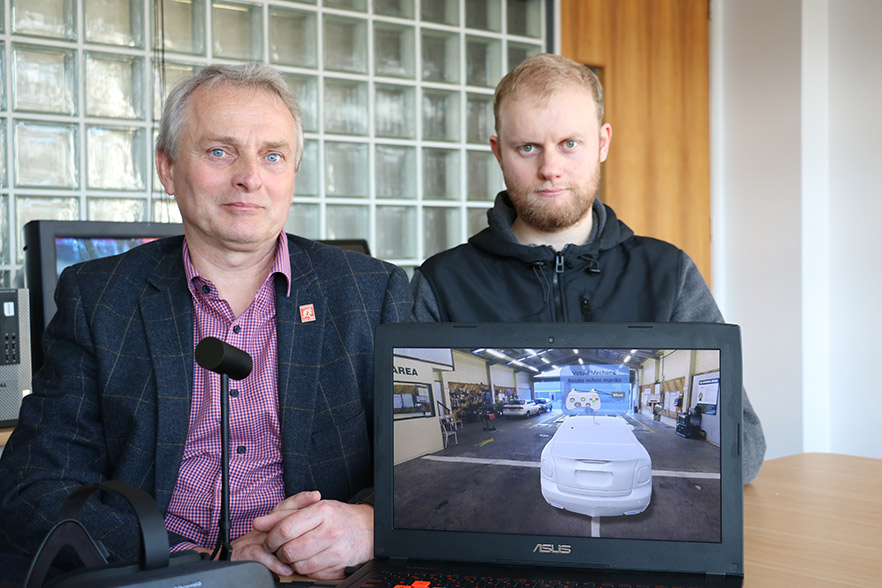VR success story

Professor Holger Regenbrecht and PhD student Jonny Collins: “Valuable links have been forged between research, social agencies, local and central government, and businesses with the potential for future growth and employment for Dunedin.”
The University of Otago is behind a ground-breaking approach to potentially improve literacy.
The University's Information Science Department has developed a high-tech way to improve reading and writing skills targeting prisoners at the Otago Corrections Facility at Milburn.
The Methodist Mission Southern approached Information Science for help in rethinking the way literacy is taught to people who often fall through the cracks – particularly those in prison.
Virtual Reality (VR) uses computer technology to create a simulated environment where users are immersed inside an experience and able to interact with three-dimensional worlds.
With the help of the investment from the GigCity Community Fund, Information Science PhD student Jonny Collins developed a virtual reality game using a setting that is both familiar and motivating to the learner—a simulated car workshop.
The resulting prototype proved successful and now Animation Research Limited and Methodist Mission Southern are developing it into a commercial enterprise, with investment support from Ngāti Kahungunu.
Jonny's supervisor Professor Holger Regenbrecht, who is also Head of Information Science, is expecting significant international interest in virtual reality contextualised learning and other real applications.
"We are not only answering technological questions about VR interfaces, we're also taking virtual reality beyond purely entertainment by developing functional uses to solve real-world problems, meeting a very real community need.
"The engagement itself has also been a major success story: valuable links have been forged between research, social agencies, local and central government, and businesses with the potential for future growth and employment for Dunedin.”